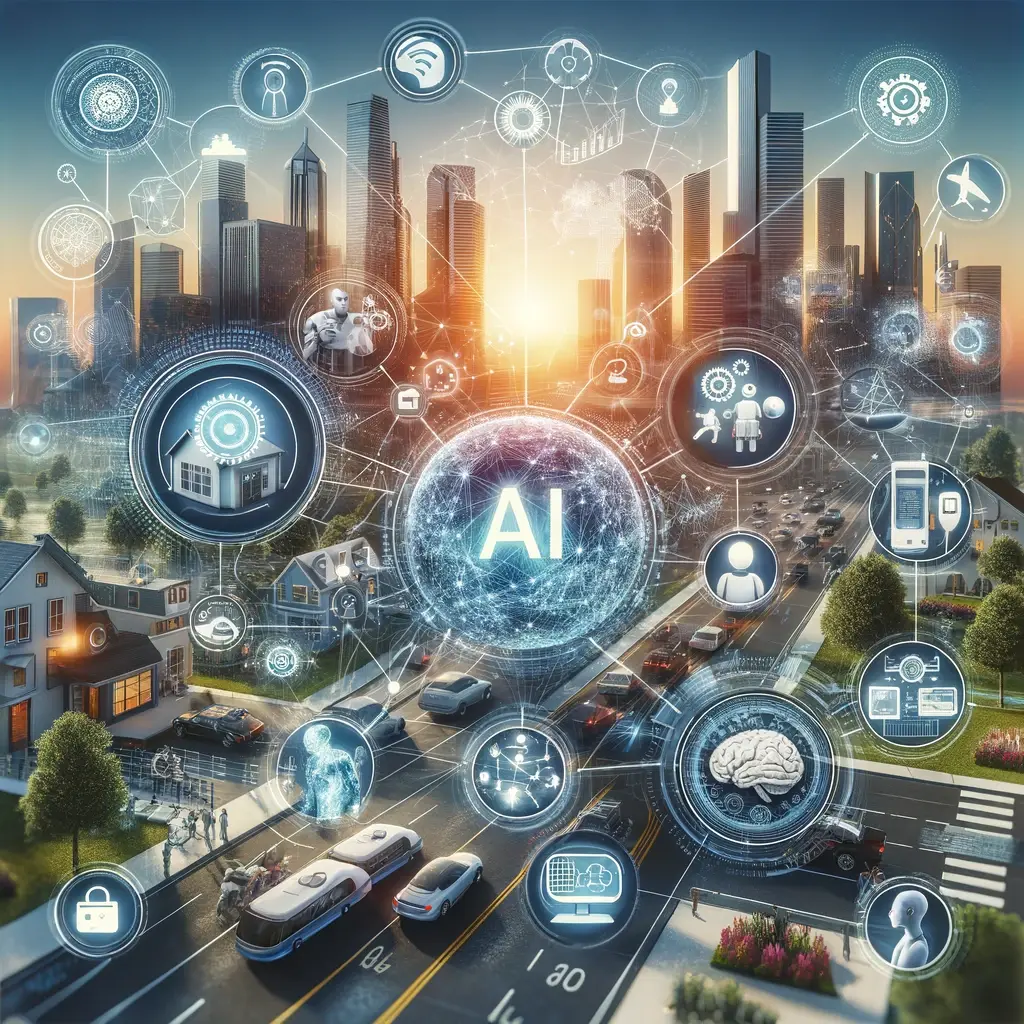
Marcin Grajoszek
29 November 2023, 5 min read

What's inside
- The Recruiter's Role - Traditional Tasks
- AI Capabilities in Recruitment
- Can AI Replace Recruiters?
- Benefits of Using AI in Recruitment
- Challenges Associated with AI in Recruitment
- Recruiter's Role in the Technology Industry
- Conclusion
Artificial Intelligence (AI) plays an increasingly prominent role across all sectors in today's dynamic business and technology landscape. From my perspective, AI is becoming particularly significant in employee recruitment. One question might keep recruiters up at night: can artificial intelligence replace the role of a recruiter?
In this article, we will explore both the capabilities offered by AI in recruitment and the evolving role of recruiters in the digital era.
Also, check one of our previous pieces, How AI Will Impact the Future of Career?
The Recruiter's Role - Traditional Tasks
The role of a recruiter involves identifying, attracting, and selecting suitable candidates for an organization. Traditionally, recruiters handle job postings, collect applications, conduct interviews, and analyze candidate profiles. Their responsibilities include assessing skills and experience and aligning candidates with job requirements.
AI Capabilities in Recruitment
Artificial Intelligence provides various tools and technologies to streamline recruitment. Here are some examples:
- Candidate Search: AI can analyze extensive databases containing professional profiles, assisting recruiters in finding the best-matched individuals for a position.
- Process Automation: AI aids in automating repetitive tasks, such as screening applications and responding to common candidate queries.
- Candidate Evaluation: AI-based solutions can conduct predictive analysis to assess which candidate will most likely succeed in a given role.
- Natural Language Processing (NLP) Analysis: AI can analyze candidate CVs and cover letters, extracting pertinent information about their skills and experience.
- Collaboration with Chatbots: AI-powered recruitment chatbots can provide candidates with information about the recruitment process and assist in answering queries.
- Automated Interview Scheduling: AI can assist in scheduling interviews, considering the availability of both the recruiter and the candidate.
Can AI Replace Recruiters?
While artificial intelligence can enhance many aspects of recruitment, more than entirely replacing recruiters is needed. Recruitment is a nuanced process requiring subtlety, an understanding of organizational culture, interpersonal communication skills, and the use of intuition. Recruiters also serve as ambassadors, attracting suitable candidates to the organization.
In the technology industry, recruitment poses unique challenges. The continuously evolving tech market and a shortage of qualified professionals make tech recruitment exceptionally demanding. AI can be highly beneficial, especially in sifting through vast numbers of applications and identifying the required technical skills. However, recruiters in the tech industry must still demonstrate deep industry knowledge and interpersonal skills to find the right specialists.
Benefits of Using AI in Recruitment
- Speed and Efficiency: AI's ability to process vast amounts of data enables recruiters to identify potential candidates much faster than traditional methods, significantly reducing the time to fill vacancies.
- Objectivity: AI can help eliminate human bias in the recruitment process. Scoring candidates based on their skills and experience can be more objective and fair.
- Scalability: AI enables companies to handle many candidates simultaneously, which is crucial for large enterprises or those with high employee turnover.
- Personalization: AI can tailor the recruitment process to individual candidate needs, providing personalized job recommendations.
- Cost Reduction: Automating recruitment processes with AI can lead to significant financial savings by reducing process duration and decreasing the need for human resources.
Challenges Associated with AI in Recruitment
- Data Errors: AI relies on human-provided data, which may be incomplete or inaccurate, posing a risk that AI-based recruitment systems might make decisions based on false or erroneous information.
- Discrimination and Bias: If AI systems are not correctly adjusted and trained, they may exhibit biases towards certain candidate groups, such as favoring one gender or showing preference based on specific demographic characteristics.
- Lack of Human Touch: Despite AI advantages, recruitment must have a human touch. Decision-making in recruitment often involves intangible character traits and communication skills.
- Understanding Organizational Culture: Recruiters traditionally play a crucial role in understanding and assessing candidates for cultural fit. AI may need help to evaluate these intangible aspects.
Recruiter's Role in the Technology Industry
In the technology industry, where finding highly qualified specialists is exceptionally challenging, leveraging AI in recruitment is particularly crucial. AI solutions can aid in screening candidates with specialized programming, data analysis, or software engineering skills. Recruiters in this field must stay well-versed in technological trends and possess the ability to evaluate candidates' projects and portfolios.
However, even in the technology industry, where technology plays a pivotal role, recruiters remain indispensable for building relationships with candidates, understanding their expectations and needs, and ensuring alignment in technical skills and organizational culture.
Conclusion
Artificial intelligence plays an increasingly significant role in recruitment, providing tools and technologies to streamline the process. However, recruitment remains a field that requires both technical and interpersonal skills.
Recruiters, especially in the technology industry, should use AI to enhance efficiency while maintaining their irreplaceable role in building relationships and understanding candidates and organizational needs. By combining AI with human expertise, recruiters can achieve successes that translate into a more efficient recruitment process and better alignment of employees with the company's needs.
At Sunscrapers, we are always eager to embrace new and innovative approaches. This exploration of AI in recruitment demonstrates our readiness to adopt tools to streamline our process, ensuring we remain a step ahead in a rapidly evolving digital world.


